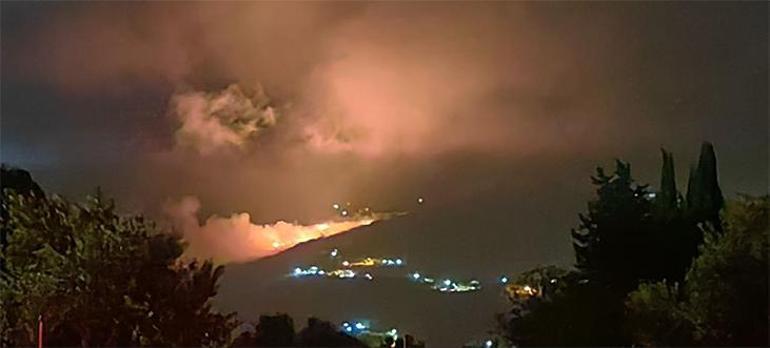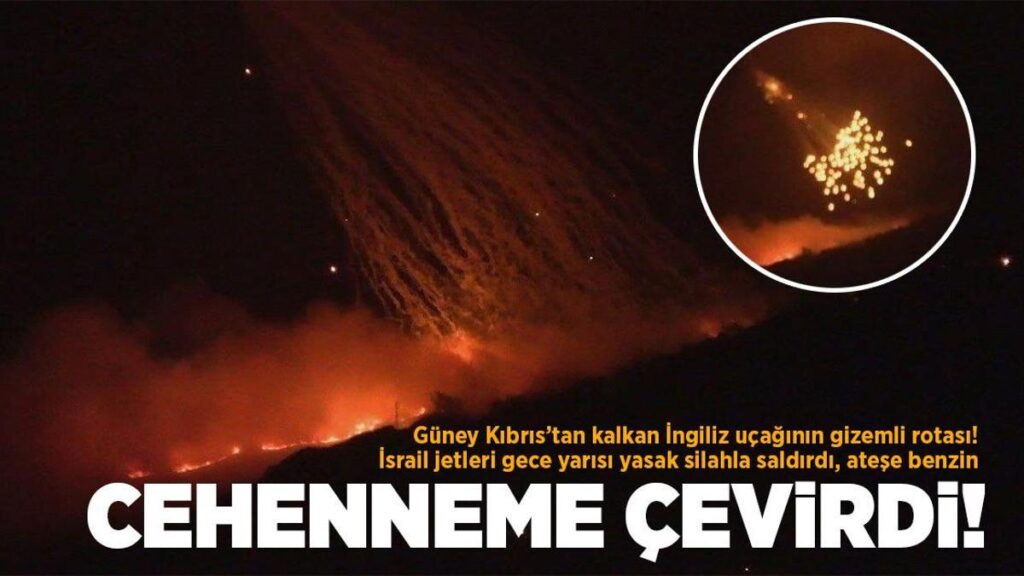
The border clashes, which began on October 8, the day after the end of the war, have mostly taken place in a small area, though at times as far as 100 kilometers inland, but the situation is changing dramatically.
Tensions escalated further after a barrage of rockets sparked massive forest fires in early June, culminating with an Israeli warplane shooting down a key Hezbollah commander followed by a fresh hail of missiles.
The Israeli military has approved new operational plans, politicians have issued statements saying they have reached a critical juncture for all-out war, and Hezbollah leader Hassan Nasrallah has appeared on television to talk about it.
With the world’s attention now focused on the much-fought border between Israel and Lebanon for three weeks, Israeli Prime Minister Benjamin Netanyahu, fighting to save his political life, announced Sunday evening that he may soon send troops to the border to the north.
Netanyahu said the violent phase of the conflict in the Gaza Strip, in which more than 37,000 Palestinians have been killed, is almost over, and reiterated that the war will continue until Hamas is destroyed.
Israeli occupation forces attacked the towns of Kfar Kera and Khiyam in southern Lebanon in the middle of the night with white phosphorus munitions, banned for use in warfare, and recorded footage showed glowing lights and burning areas near the border.
In Metula, two Israeli soldiers were wounded in a Hezbollah anti-tank missile attack.
Other countries have followed Kuwait’s lead and urged their citizens to leave Lebanon. North Macedonia has asked its citizens in Lebanon to leave immediately.
A KC2 Voyager transport plane took off from the Royal Air Force base of Akrotour in southern Cyprus and landed in the Lebanese capital of Beirut. It is not yet clear why the plane was headed to Beirut.
Hezbollah leader Nasrallah told the world in a speech last week that he would attack southern Cyprus if the airport was opened to Israeli warplanes. The uprising marks the first time that Hezbollah, Lebanon’s most powerful military force, has threatened a European Union member state.
The Greeks have stated that they are not involved in the war.
Greece reveals European concerns
As the all-out war moves forward, Hezbollah’s threats to Southern Cyprus have reverberated throughout Europe. Josep Borrell, the European Union’s High Representative for Foreign Affairs and Security Policy, warned that the Middle East is at a critical point, saying, “We are on the eve of an escalation of the war. There is a risk that the war will affect the southern part of the EU.” The number of infections in Lebanon is increasing day by day.
German Foreign Minister Annalena Baerbock, who announced an upcoming visit to Lebanon, said Berlin was very concerned. “Any further escalation could be catastrophic for the people of the region,” Baerbock said.
Greek Foreign Minister Giorgos Gerapetritis also spoke ahead of the monthly meeting of European Union ministers. He condemned Hezbollah threats against Southern Cyprus as “unacceptable” and said the European Union would stand by its member states.
The flying distance between the Lebanese capital, Beirut, and southern Cyprus is 240 km. The shortest distance between the east of southern Cyprus and the north of Lebanon is 160 km.
Hezbollah’s arsenal of tens of thousands of missiles includes Fatah and Zelzal missiles, with ranges of 300 and 210 kilometers.


